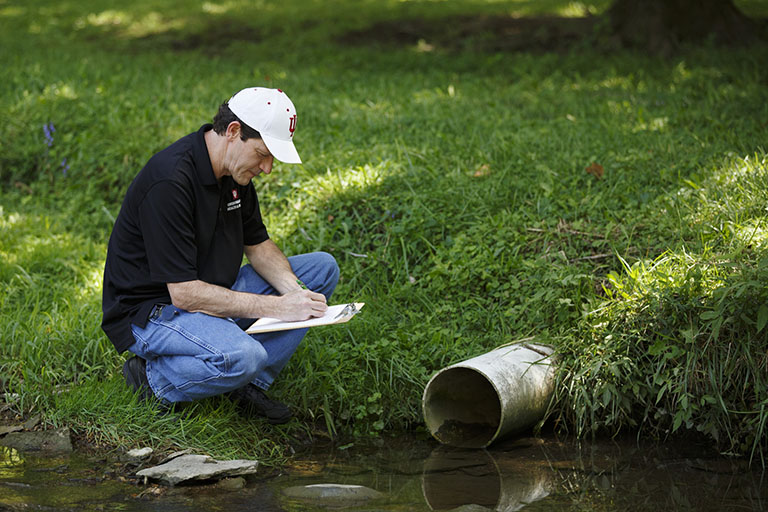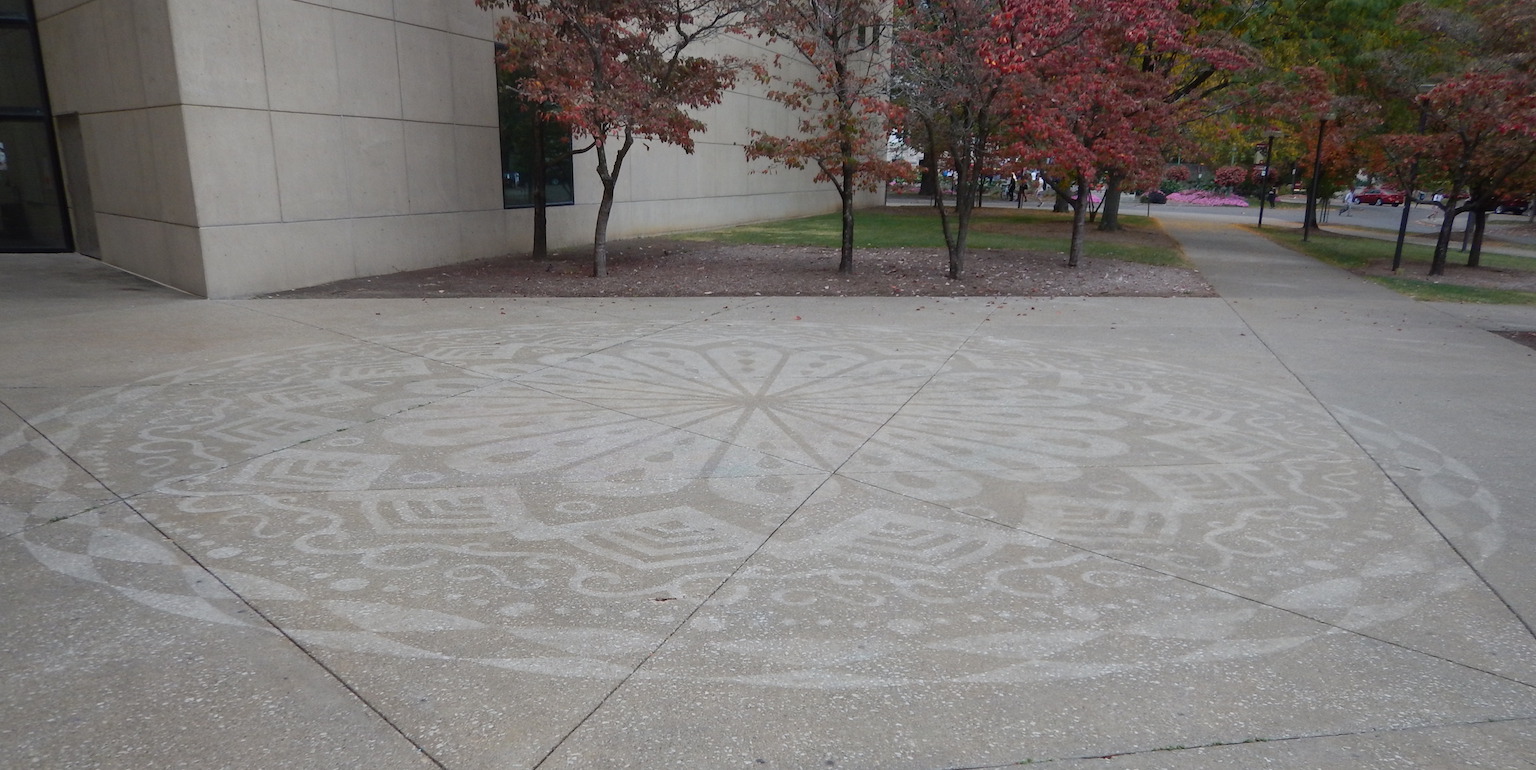IU campuses are an integral part of the communities they serve and can have significant impacts to the environments in which they are located. This is particularly true for water quality, as many lakes, streams, rivers, and other water bodies are located near or run through IU campuses.
Under provisions of the Clean Water Act (CWA), IU is required to protect campus waters from pollution caused by petroleum spills, stormwater runoff, and point source discharges. IUEHS ensures compliance with water quality regulations for all campuses through established programs and standard operating procedures.
Stormwater runoff from campus has the highest potential for significant impact to community water resources. Stormwater runoff results from rain or melted snow flowing across impervious surfaces such as concrete and asphalt, picking up debris, dirt, and chemical pollutants along the way and then collecting in storm sewers, which discharge directly into waters used for recreational activities and drinking supply. Polluted runoff can be toxic to plants and animals and can diminish the health of aquatic ecosystems. There is no simple solution. By reducing or eliminating the amount of pollutants in stormwater runoff, we can limit the detrimental effects and help ensure a pristine and viable environment for generations to come.
Stormwater runoff is a non-point source discharge and is regulated through state-issued permits in accordance with the CWA's National Pollution Discharge Elimination System (NPDES). Permits are issued for broad areas, such as a campus or a city, and have a cumulative potential to impact waterways.
The IU Stormwater Protection Program includes requirements for permitting, chemical storage inspections, spill prevention, drain and outfall inspections, construction site monitoring, identification and implementation of best management practices (BMPs), and following up on campus pollution reports. IU works with community partners as well as state and local regulating authorities to ensure the highest degree of protection from stormwater runoff for water resources on and around its campuses.
Point source discharges are also regulated by permit under NPDES provisions, but are narrowly focused on individual discharge outlets from specific processes or facilities. IU currently has one point source discharge that is monitored under an NPDES permit that requires routine sampling and inspections.
IU facilities that store oil and petroleum products are required to have a Spill Prevention Countermeasures and Control (SPCC) plan to prevent contamination of waterways from petroleum spills. The IU SPCC Program identifies and controls or eliminates potential sources of petroleum contamination to surface waters in the unlikely event of a spill or discharge. The program covers all campuses and includes individual SPCC plans for each campus.
Under the authority of the Safe Drinking Water Act (SDWA), Indiana has established a Wellhead Protection Program to prevent contamination of groundwater used for community drinking water supply. The IU Wellhead Protection Program covers building design, inspections, and maintenance practices that may impact groundwater sources in designated areas. Currently, IU Indianapolis is the only campus that operates in a wellhead protection area.



